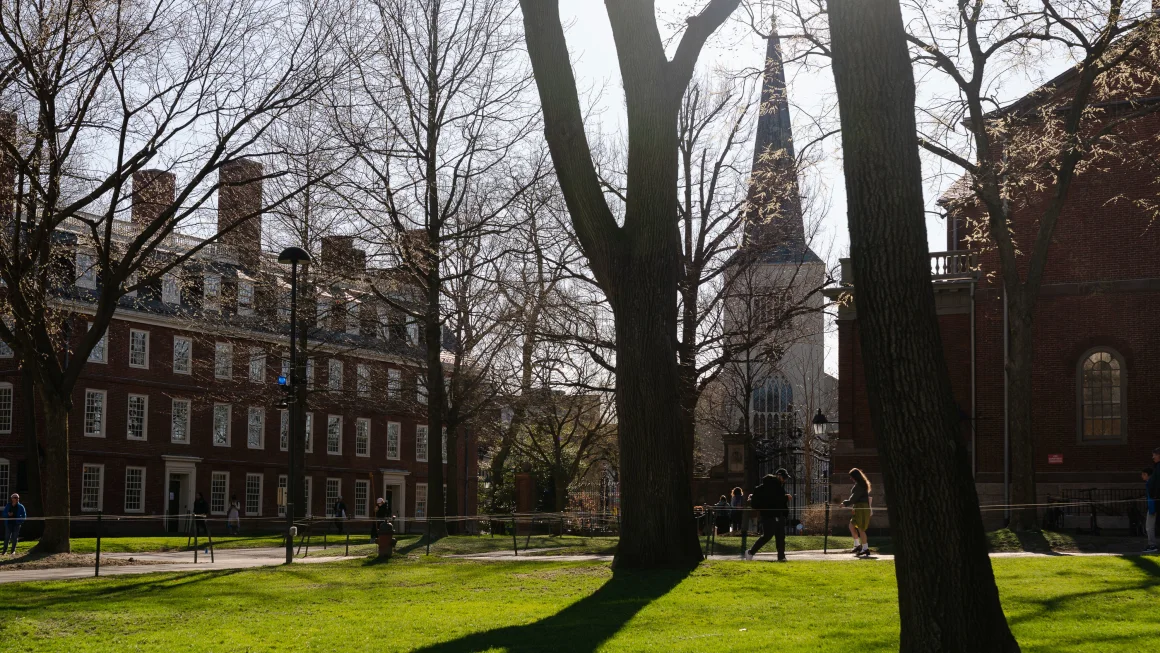# Navigating Tensions: Harvard’s Delicate Dance with the Trump Administration
Harvard University, one of the most prestigious educational institutions worldwide, has found itself in a challenging position as it tries to manage its relationship with the Trump administration amidst increasing pressures from its donor community. This situation highlights the often complex interplay between educational institutions and political powers, particularly in times of heightened political sensitivity.
## The Balancing Act
As Harvard endeavors to maintain its independence and integrity, the university has been cautiously avoiding a direct confrontation with the White House. It is a delicate balance to strike, especially given the politically charged atmosphere that has characterized much of President Trump’s tenure. The administration has enacted policies and directives that have sometimes put them at odds with the academic community, including Harvard, which prides itself on a diverse and global approach to education.
## The Role of Donors
Adding another layer to this complex situation is the influence of Harvard’s substantial donor community. Many prominent backers of the university have begun to wield their influence, urging the school’s administrators to reconsider their stance and reopen negotiations with the Trump administration. These donors play a crucial role in the financial ecosystem of the university, contributing to its capacity to offer scholarships, fund research, and maintain its vast array of resources. Their voices are significant and cannot be easily dismissed, making the call for renewed dialogue with the government a pressing matter for Harvard’s leadership.
## The Stakes at Hand
The stakes are high for both Harvard and the Trump administration. For Harvard, there is a need to protect its ethos and commitment to providing a liberal education, free from excessive political influence or coercion. The university must consider the potential impacts of tighter governmental connections on its reputation, particularly among its diverse body of students, faculty, and global partners.
Conversely, the Trump administration, known for its assertive and often unpredictable policy measures, may see benefit in bringing Harvard, a leading intellectual powerhouse, into closer alignment with its agenda. This could serve as a powerful endorsement of the administration’s broader educational policies, particularly those that have been met with resistance from other quarters of the academic world.
## The Path Forward
Harvard’s leadership faces a complex decision matrix as it navigates this situation. Renewing talks with the White House is not merely about yielding to the pressures exerted by influential donors; it’s also about strategically positioning the university in a rapidly evolving political landscape while safeguarding its values and autonomy.
The challenge lies in finding a mutual ground where dialogue can occur without compromising the fundamental principles that define Harvard. It will require diplomatic finesse and a deep understanding of both the potential benefits and risks involved.
## Conclusion
In conclusion, as Harvard weighs its options, the broader implications of its decisions extend beyond the ivy-covered walls of its campus. The outcome of this situation could set precedents for how educational institutions across the nation might navigate their relationships with political entities, especially under administrations seeking stronger alignments with academia. Harvard’s next steps could well be a bellwether for the academic community at large, offering lessons in either capitulation or courageous independence in the face of mounting pressures.
In these polarized times, the eyes of both the academic world and the broader public remain fixed on how one of its most venerable institutions will navigate the choppy political waters it currently faces, making it a topic of significant relevance and concern.










